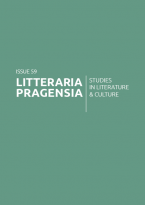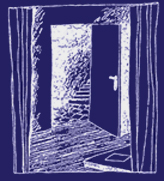
|
30.59 Celtic Languages in a Globalized WorldEdited by: Radvan Markus & Petra Johana Poncarová Volume: 30 Issue: 59 July 2020 |
Contents
|
Radvan Markus
,
Petra Johana Poncarová
Celtic Languages in a Globalized World: Introduction
full article
metadata
|
1 |
|
Radvan Markus
The Irish Language and the Pursuit of Freedom
show abstract
full article
metadata
As evidenced in a number of recent public debates about Irish, the arguments about freedom and choice are often used by those who wish to limit the state support for the language in Ireland. Yet, one can use the same arguments to support the need to protect Irish and other endangered languages. The article first examines the philosophical underpinnings of the Irish language revival and concludes that one can read the legacy of thinkers such as Johann Gottfried Herder not only as conducive to nationalism and language determinism, but as having an emancipatory and “ecological” potential. The article then examines the connection between Irish and various notions of personal freedom in Irish-language literature since the revival. The twentieth-century authors discussed include Pádraic Ó Conaire, Micheál mac Liammóir, Brian Ó Nualláin, Máirtín Ó Cadhain, and Seán Ó Ríordáin. The last part of the article analyses Dave Duggan’s recent novel Makaronik, which takes the connection between language diversity and the freedom of choice as its central theme.
|
8 |
|
Daniela Theinová
Language and Crisis in Contemporary Irish-language Poetry
show abstract
full article
metadata
Modern poetry in Irish has been influenced by two major factors: the interrupted cultural heritage and the minoritized status of the language. With tightening global connections, the precarious situation of Irish has been considered alongside other minor and endangered languages, as well as the deteriorating climate. This article explores the temporal and spatial tensions that surround the language issue and climate emergency in contemporary poetic output in Irish. The main focus is on the poetry of Ailbhe Ní Ghearbhuigh and Aifric Mac Aodha who both express concerns about the future of their medium by way of reference to the existential threats of the Anthropocene. While as poets of globalized consciousness they are acutely aware of the urgency of these topics, their works also attest to how crisis and conflict is intrinsic to the language of poetry per se.
|
26 |
|
Nelly Blanchard
Nineteenth- to Twenty-first-century Breton Literature: Authors of a Combative Literature and Their Evolving Motivations
show abstract
full article
metadata
This article proposes an analysis of motivations for writing in the Breton language, from the nineteenth to the twenty-first century. In various manners, all the authors seek to defend the existence of Breton and contribute to its future. Depending on the period, this combative writing develops in different socio-political and sociolinguistic contexts, produced by different groups or individuals with sometimes similar and sometimes divergent intentions.
|
48 |
|
Martina Reiterová
“Une arme de premier ordre”: Representation of Breton and Welsh in Revivalist Discourse around 1900
show abstract
full article
metadata
The present article examines the ways in which the Breton language is represented and perceived in revivalist writings from around 1900, with comparative references to the image of Welsh in the publications of Welsh revivalist authors from the same period. Undoubtedly, the existence of the minority language was one of the most important arguments for any nation-building movement in claiming cultural and political rights. In the process of promoting the language, the revivalists were nevertheless facing difficulties arising from its minority position. These included, for instance, the language boundary in Brittany or the risk of being accused of separatism. Revivalist movements therefore adopted different discourse strategies to represent the language, with the aim to appeal not only to its speakers but also to accommodate members of the majority language community, as well as an international audience. This article seeks to answer the following questions: what are the representational strategies the revivalist groups adopted to defend and promote the minority language in addressing the general public? How did they communicate the necessity to revive or keep a minority language alive to a non-speaker or a non-member of the nation? The main sources employed are publications by members of Breton and Welsh revivalist movements. Methods of discourse analysis are applied in a comparative and transnational perspective.
|
62 |
|
Petra Johana Poncarová
“A Fitting Offering to the Gaelic Thalia or Melpomene”: Ruaraidh Erskine of Mar and Drama in Scottish Gaelic
show abstract
full article
metadata
This article focuses on Ruaraidh Erskine of Mar (1869-1960), a Scottish Gaelic activist, publisher, critic, and author, and his contributions to Gaelic drama – a genre that has been constantly called for by revivalists, but has so far not gained prominence in Gaelic literature. The chief concern is a series of four articles on the subject that Erskine published in his journal Guth na Bliadhna in the 1910s. These intriguing texts sum up his opinions on future Gaelic drama and present guidelines for playwrights. A mixture of cosmopolitan open-mindedness, elitism, essentialist views of nationality and culture, organizational practicality and economic shrewdness – expressed in a highly polished, witty style – they present a revealing insight into Erskine’s thought and the Gaelic movement in the 1910s, and offer several points of continuing relevance.
|
77 |
|
Christopher Whyte
Writing in Gaelic: Alternative Agendas
show abstract
full article
metadata
The article outlines a series of considerations which matured in the course of my work as a writer in Gaelic over more than three decades. It draws on what Rilke wrote about an accusation of being “unpatriotic” because he chose not to live in a German-speaking community, whereas he finds that precisely not being surrounded by the language he is writing in creates nearly ideal circumstances for making poetry with it. The usefulness of replacing “minority” with “minoritized” as descriptive qualifier is discussed, citing the example of Marina Tsvetaeva in 1930s Paris. The “symptomatology” of a “majoritized” language is outlined, with certain deleterious effects this may have on both language use and the culture for which it is a vehicle. If self-translation is symptomatic of writing under “minoritized” conditions, the practice of “relay translation” may indicate an unhelpful isolation and even solipsism when writing from a “majoritized” position. The writer in a “minoritized” language displays an enviable degree of “linguistic permeability” which one would seek in vain for with many writers in the English-speaking world. Given my own situation in Glasgow of the 1960s and 1970s, Gaelic, rather than being a language in need of rescuing, presented an invaluable opportunity for the poetry I needed to write. Resisting its allure would have been senseless.
|
93 |
|
Justin Quinn
Irish as a Lingua Franca
show abstract
full article
metadata
Of many minority languages, Irish has ended up as close neighbour to a language that was not only that of the ruling empire, but also is now a global lingua franca. Such incommensurate strengths – demographics, cultural prestige, and other aspects – might be viewed as unfortunate at first glance: Irish grows weaker as English grows stronger. But on closer inspection, the story is not so clear. This article examines some aspects of English’s status as a lingua franca – linguaculture, demotion of the native speaker, intercultural communication, communities of practice – and asks what the consequences for the Irish language and its culture are, as well as which of these might be used to think about the Irish language.
|
108 |
|
Notes on Contributors
full article
|
121 |


